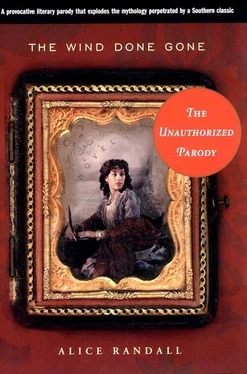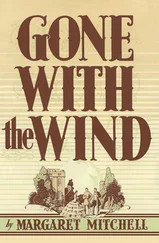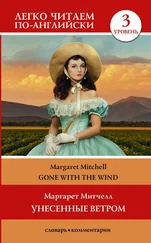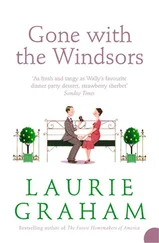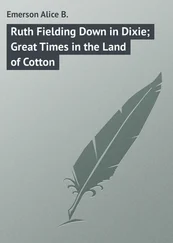He's used to buying women and ladies and buying them jewelry. I'm going to give him some of his own back. I like to give R. things. I like to give him what he's used to paying for.
Sometimes when we are in bed and he's sucking on one of my breast, pulling hard and steady so the pull only brings me the pleasure, sometimes when he's nursing on me, I smile, because he can't get what he wants here. I'm dry. But I let him suck himself to sleep. And sometimes there comes over his face a look of peace. Sometimes when I'm riding astride him and my gals dangle toward his face, he snaps at them like the foxes snapping at grapes dangling just above their mouths, and I laugh. Once, just after that, he pushed so hard into me that something broke inside and we were touching without anything between us, like a fever came over me, and he had the same sickness.
Then I closed my eyes and I saw Other.
She was old enough to walk. She walked right past me, past Lady, she walked right past Lady and me, over to Mammy, reached up for Mammy, and my Mama reached down to pull Other up onto her hip. Other reached into the top of Mammy's dress and pulled out my mother's breast. "I want some titty-tip," she said, and I ached in some place I didn't know I had, where my heart should have been but wasn't. I've come to believe that was the very first time I ever felt my soul, and it was having a spasm. It clinched again, pushing the air out of me in a hiccup. I flushed in a rage of possession as those little white hands drew the nipple toward the little pink mouth, then clasped on.
I turned to see the delicate Lady. She was clutching at her cinched waist and staggering back. I ran toward her; she steadied herself, using my head as a kind of crutch or prop. I started fanning the flies off her and I kept fanning.
Wasn't it then Planter walked out on the whitewashed porch and smiled?
Did he say, "My peculiar heaven, my peculiar, particular heaven" I believe that's what he said. That's what he says when I remember it.
His frail wife near faints and is fanned by the fairest of pretty pickaninnies, M.E." and he's pronouncing, "My peculiar heaven." The rosebud mouth attached to the black moon in the brown breast, the curving back of the loving woman lifting the child to her pleasures, as the child, awake, untouched by stays and hoops, stands on tippy-toe to get her fill of pleasure, all raven-haired and unashamed of hunger. Him laughed. For his first-born daughter the pangs of hunger were as delightful as a mosquito bite, something to scratch in the next moment, the promise of pleasure to come.
He didn't see me hiding behind Lady's skirts or see the look Mammy gave me over Other's head. Planter only saw his daughter taking pleasure where he himself had done.
Now I'm Mammy grown, I wonder what Lady saw. She was just the oldest child on the porch, seventeen, with a three year-old daughter. Never certain of feeding, I did not welcome hunger. I looked and wanted to suck; Lady looked and wanted to suckle-feed. We were both envious.
Later, when it looked like the four o'clock flowers opened their faces to the sun, but really when they smiled their relief to the arriving shade, when the baby of the house, Other, slept on a cool soft pallet and I tried to sleep on a hot rug in the kitchen, Lady called for a basin of water and a glass of sweet milk, and I was roused to serve it.
Or was it when Other was napping on a pallet in her room and I was one of the children fanning the flies away from little Miss while she slept, that Lady called from the next room, "Mammy, send Cindy up with some cool water and a glass of sweet milk. I'm thirsty and I want a sponge bath." I walked in with what she wanted. Lady made herself comfortable in her rocking chair. "Are you hungry?" I nodded. She handed me the glass of milk. I hesitated. "You can drink it." I took the glass and drank. She took the glass from my hand and drank right after me. I was surprised. Really I was astounded. I didn't know the word then, but that's what I was.
"Help me unbutton my dress; I want to wash." I helped her take off her dress. Her bared breast was just a little thing with a dented nipple almost as big as the circle it stood in. The circle was that tiny. "Are you still hungry?" I nodded again.
She pulled me onto her lap and I suckled at her breast till her warm milk filled me. As always, it was a cheering surprise for both of us.
We had been sharing these little spurred-by-envy suppers all my memory, but each time the milk came and how long it came without running out was a mystery to us both. Later, when I slept beside her, she said, "You're my little girl, aren't you?" Mammy worked from can't-see in the morning to can't-see at night, in that great whitewashed wide columned house surrounded by curvy furrowed fields. The mud, the dirt, was so red, when you looked at the cotton blooming in a field it brought to mind a sleeping gown after childbirth-all soft white cotton and blood.
If it was mine to be able to paint pictures, if I possessed the gift of painting, I would paint a cotton gown balled up and thrown into a corner waiting to be washed, and I would call it "Georgia." Mammy never knew rest, but she is no fool. I believe she knows why R. doesn't give a damn about Other anymore. Mammy knows that he's in love with me, and after the Tragedy there's nothing to keep us apart.
The Tragedy, yes, that is what it was. I cried when that child died.
R. thought she was beautiful, and Other thought she was spoilt. Neither one of them was right. Everything that was gold and bold lived big in Precious. She looked too much like my Daddy to be pretty. Except when she kissed me and I would pull her curls. Precious: that's what I called her. Her grandfather would look right through me, but she would run to me and throw her arms around my waist. I got his hugs from her, and they were sweet to me, precious. She gave me my Daddy's kisses. She was his grandchild and they were my kisses, and her mouth looked just like his mouth. Not like Other's or Lady's or R.’s. She had Planter's mouth, and she gave me Planter's kisses.
The night Precious died, R. tried to plant a child in me. Most every other time, he pulled out, making a mess on my belly that shamed me. He didn't want any bastards, beige or white.
They thought he stayed alone with her, his dead Precious, in that room those days between her death and the burial. But I was there. I was there. I held his hand in the burning light, because Precious was afraid of the dark.
In that room we were a family. Grief will form one family just the way it will destroy another. It's a primary force.
What did he lose when he lost her? What do I know 'bout what runs between a daddy and his daughter? Not very much. R. didn't know why Precious cried in the dark, and I don't know either.
Georgia is dirty laundry what needs washing.
I told that to R. last evening. We were out walking in Oakland Cemetery. Oakland Cemetery may well be the prettiest garden in Atlanta. And the dead don't care who's out walking with who and if their colors match. Plenty folks, black and white, pack picnics and make a feast of a visit. All those gravestones got us to talking 'bout whether I should or should not run home to Mammy.
I have my reasons for not going and I have his. His reason is Other.
Chivalry dictates that his wife and his mistress do not meet. I said, "Georgia is laundry what needs washing." He put one of his manicured hands over each of my ears and pressed. "Peanut head," he said. I couldn't tell if it was a joke or an insult, he was pressing so hard. I didn't like the fact he wouldn't acknowledge my truth.
Georgia is dirty laundry what needs washing.
If I didn't want to back down, I knew I had to turn my taunt into a joke. "I've got a big head. A watermelon head, more likely. Too big for ladies' hats. At least a walnut. You can crack open a peanut, so easy," I said. "You can do it with your fingers.”
Читать дальше
